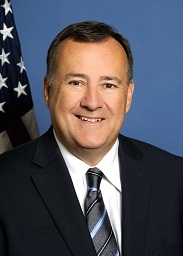 Field of membership is an issue which has concerned me for some time, ever since I served on the board of one of my local credit unions, and later when I shepherded modernization of Oregon's FOM rules through its legislature. FOM is an issue which I believe we can start addressing through regulation, and continue to work on through statutory changes. These changes can help federal credit unions grow and serve more Americans, especially those of modest means.
Field of membership is an issue which has concerned me for some time, ever since I served on the board of one of my local credit unions, and later when I shepherded modernization of Oregon's FOM rules through its legislature. FOM is an issue which I believe we can start addressing through regulation, and continue to work on through statutory changes. These changes can help federal credit unions grow and serve more Americans, especially those of modest means.
In the decade and a half since the passage of the Credit Union Membership Access Act of 1998, online and internet banking have exploded, the financial services industry has consolidated and many states have modernized their state charters. Unfortunately, the federal charter has not kept up with these changes.
It needs to be modernized, and that is something you and I can both work on.
At the NCUA, we have a responsibility to make sure that we fully use the authority we have under CUMAA to help credit unions strengthen their bottom lines and be able to serve more members. That's why I am pleased that the agency has formed an internal working group to review our FOM regulations.
Our working group will consult with credit unions and other interest parties on how we can, under our existing authority, improve federal FOM rules. I believe there are a number of changes we can make to streamline our existing rules and expand access to credit union services for American families.
Among them are at least five changes that could have significant impact:
- Allow credit unions converting from single or multiple common bonds to community charters to continue serving select employer groups, even if they are located outside the new community charter boundaries;
- Permit the addition of adjacent areas to community charters without requiring them to be in a Census Bureau “Core-Based Statistical Area”. And parenthetically, I would challenge any of you to tell me what the borders are of the CBSA you live in. Almost no one outside the Census Bureau knows what they are or considers them relevant to the markets credit unions seek to serve.
- Eliminate the current requirement that a community charter serve the “core area” of a CBSA. Again, I would challenge most people to identify what the core area is of the community they live or work in.
- Revise and simplify the processing for determining that an area is underserved and thus eligible to be added to the FOM of a community charter.
- Allow active-duty military personnel and their families to automatically qualify as low-income households.
I invite the credit union community to send me their additional ideas of how the regulations can be streamlined and improved, within the confines of existing law.
It is also clear to me that there are FOM changes that are necessary, that go beyond NCUA's authority under existing law. We need Congress to pass changes in the statute. We know that may not be easy in the current political environment, but past changes were enacted on a bipartisan basis, and we would hope that future changes could be as well.
Enacting statutory changes will not be easy, and it will require all of us, both the regulator and regulated, to work together to overcome other groups who have a vested interest in maintaining the status quo.
It frankly is not helpful when groups such as NAFCU suggest, as NAFCU did this week in an op-ed accusing us of hiding behind the law (NCUA and FOM: Hiding Behind the Law, Jan. 5 CUTimes), that the NCUA is responsible for lack of action on Capitol Hill. This would be like the agency suggesting that lack of action on Capitol Hill is due to NAFCU's ineffectiveness in lobbying on the Hill. It is disingenuous at best for NAFCU to suggest that the agency is “Hiding Behind the Law” when they know that the specific changes they request ALL require statutory changes and are not within our authority to grant. The agency isn't hiding behind the law, we are implementing the laws the Congress has passed, which is our responsibility.
Finger-pointing benefits no one, when we need to be working together, and especially when they know, or should know, that the NCUA's most recent testimony to the Senate Banking Committee on Sept. 16 included one of the specific FOM changes NAFCU now says it wants.
So I call upon the credit union community to put aside finger-pointing, and come up to Capitol Hill in 2015 and join the NCUA in calling for enactment of legislation to enable credit unions to compete in today's increasingly complex financial markets and to serve more American families, especially those of modest means.
Rick Metsger is vice chairman of the NCUA. The above was taken from Metsger's prepared remarks delivered Jan. 8 at the NoVa Chapter of the Virginia Credit Union League.
© Touchpoint Markets, All Rights Reserved. Request academic re-use from www.copyright.com. All other uses, submit a request to [email protected]. For more inforrmation visit Asset & Logo Licensing.






